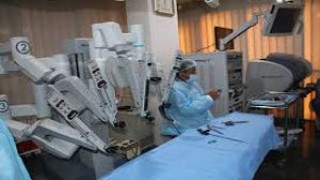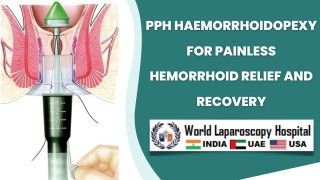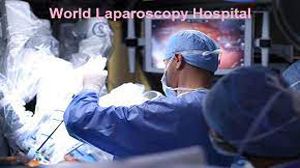Meckel's Diverticulum Surgery
Add to
Share
472 views
Report
4 months ago
Description
Meckel's diverticulum is a congenital anomaly resulting from incomplete obliteration of the vitelline (omphalomesenteric) duct during fetal development. It is the most common congenital abnormality of the small intestine, occurring in approximately 2% of the population. While most cases remain asymptomatic, complications such as bleeding, obstruction, inflammation (diverticulitis), and perforation may necessitate surgical intervention. Indications for Surgery Surgery is generally indicated in the following situations: Symptomatic Meckel’s Diverticulum: Patients presenting with gastrointestinal bleeding, abdominal pain, or diverticulitis. Complications: Obstruction: Due to intussusception or volvulus. Perforation: Leading to peritonitis. Tumor formation: Rare, but may include carcinoid or adenocarcinoma. Incidentally discovered diverticulum: Surgeons may opt for prophylactic resection in younger patients if the diverticulum has a wide base or ectopic tissue. Surgical Approaches Open Surgery: Traditionally performed via a small laparotomy. The diverticulum is identified, and resection is performed either by: Diverticulectomy: Excision of the diverticulum alone. Segmental Ileal Resection: Removal of the diverticulum along with a segment of adjacent ileum, followed by primary anastomosis, especially if there is inflammation or ectopic tissue. Laparoscopic Surgery: Minimally invasive and increasingly preferred for both elective and emergency cases. Provides better visualization, reduced postoperative pain, and faster recovery. Laparoscopic resection can be performed using a diverticulectomy or ileal resection, depending on the involvement of the bowel. Postoperative Care Patients are usually monitored for signs of infection, bowel obstruction, or anastomotic leakage. Early mobilization, pain management, and gradual introduction of diet are essential for recovery. Most patients recover fully within 1–2 weeks, depending on the surgical approach and presence of complications. Complications of Surgery Though generally safe, potential complications include: Infection or abscess formation Anastomotic leak Bowel obstruction or adhesions Bleeding Prognosis With timely surgical intervention, the prognosis of Meckel’s diverticulum is excellent. Asymptomatic cases discovered incidentally may be managed conservatively or resected prophylactically based on patient age and risk factors. Conclusion Meckel’s diverticulum, though often silent, can lead to serious complications that require prompt surgical intervention. Advances in laparoscopic surgery have made management safer, less invasive, and associated with faster recovery. Surgical planning should be individualized, considering the patient’s symptoms, anatomy, and risk factors.
Similar Videos






